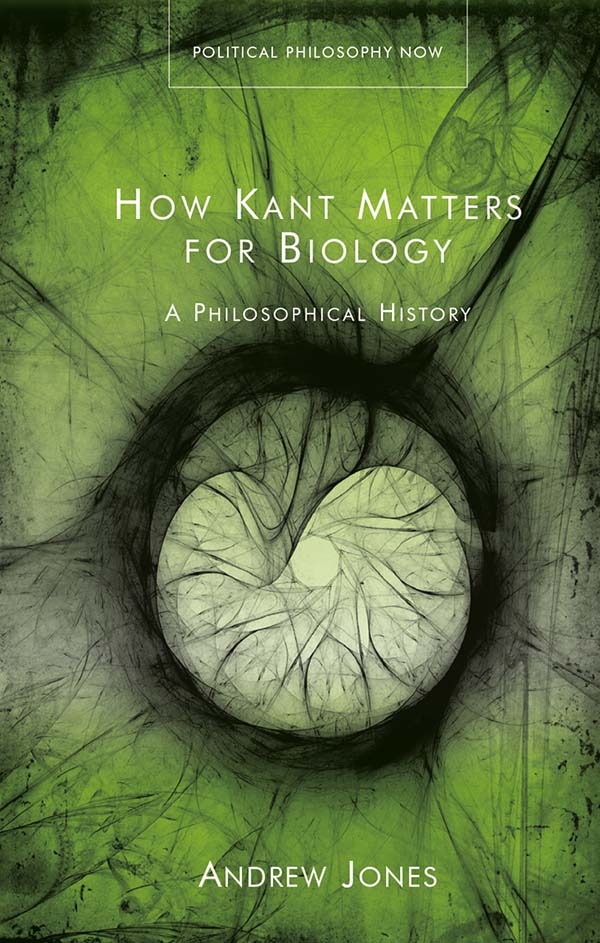How Kant Matters For Biology
A Philosophical History
Author(s) Andrew Jones
Language: English
Genre(s): Philosophy
Series: Political Philosophy Now
- March 2023 · 240 pages ·216x138mm
- · Hardback - 9781786839732
- · eBook - pdf - 9781786839749
- · eBook - epub - 9781786839756
Kant denied biology the status of proper science, yet his account of the organism has received much attention from both philosophical and historical perspectives. This book argues that Kant’s influence on biology in the British Isles is in part due to misunderstandings of his philosophy. Highlighting these misunderstandings exposes how Kant influenced various aspects of scientific method, despite the underlying incompatibility between transcendental idealism and scientific naturalism. This book raises criticism against scientific naturalism as it demonstrates how some concepts that are central to biology have been historically justified in ways that are incompatible with naturalism. Approaching current issues in philosophy of biology from a Kantian orientation offers new perspectives to debates including our knowledge of laws of nature, the unity of science, and our understanding of organisms. Moreover, new avenues are forged to demonstrate the benefits of adopting Kant-inspired approaches to issues in contemporary philosophy of science.
Introduction
1. Understanding influence: the role of transcendental idealism for the development of biology
2. Kant’s response to Hume and the status of laws in contemporary philosophy of science
3. Kant’s influence on Whewell
4. Whewell’s influence on Darwin and role of design for the organism
5. Kant’s significance for contemporary philosophy of biology
Conclusion
Endnotes
Bibliography


